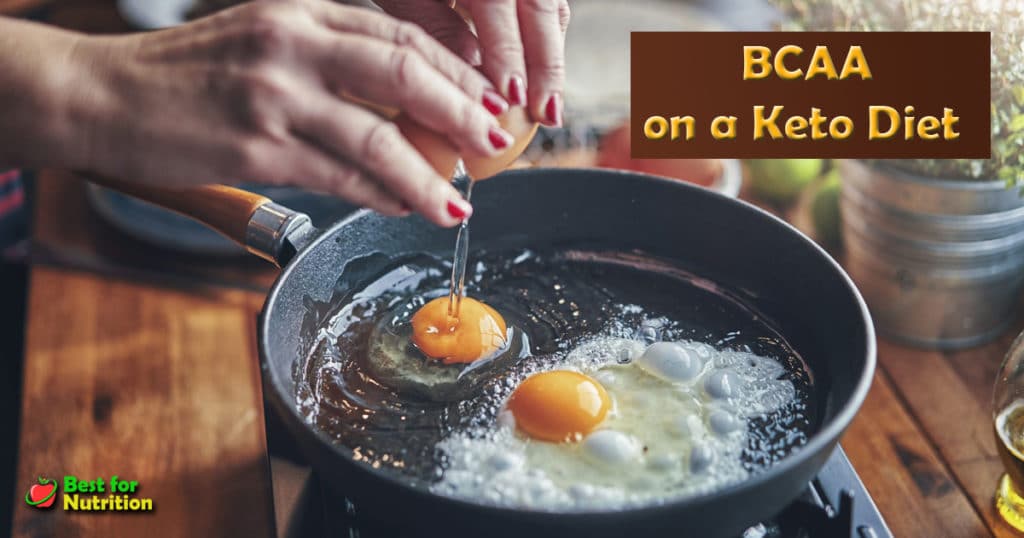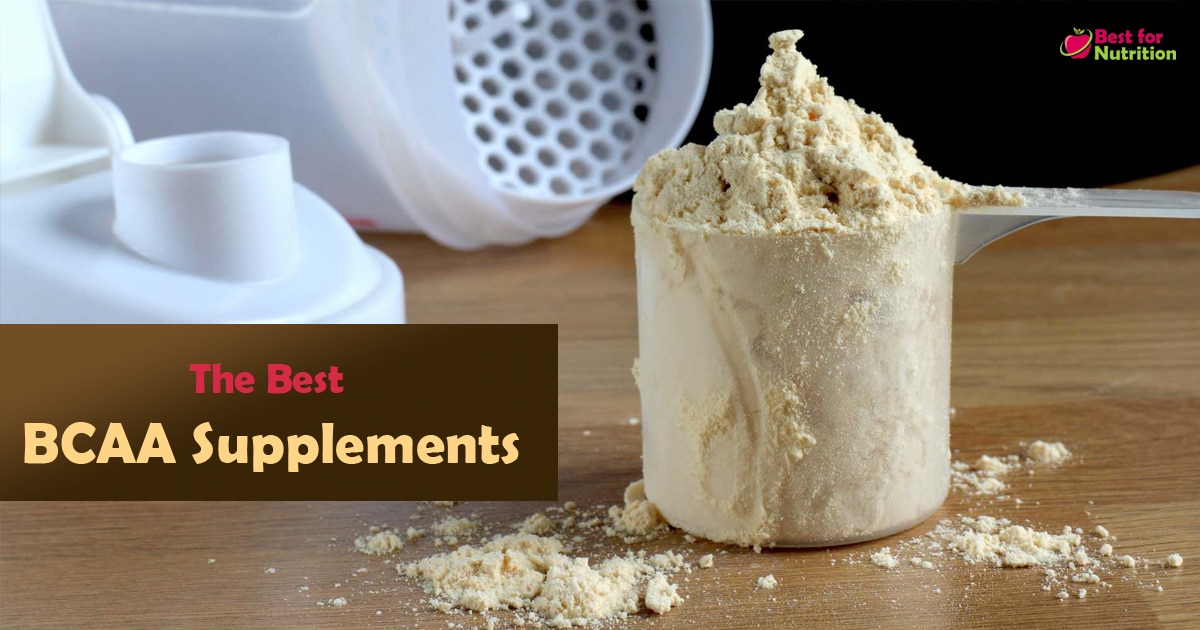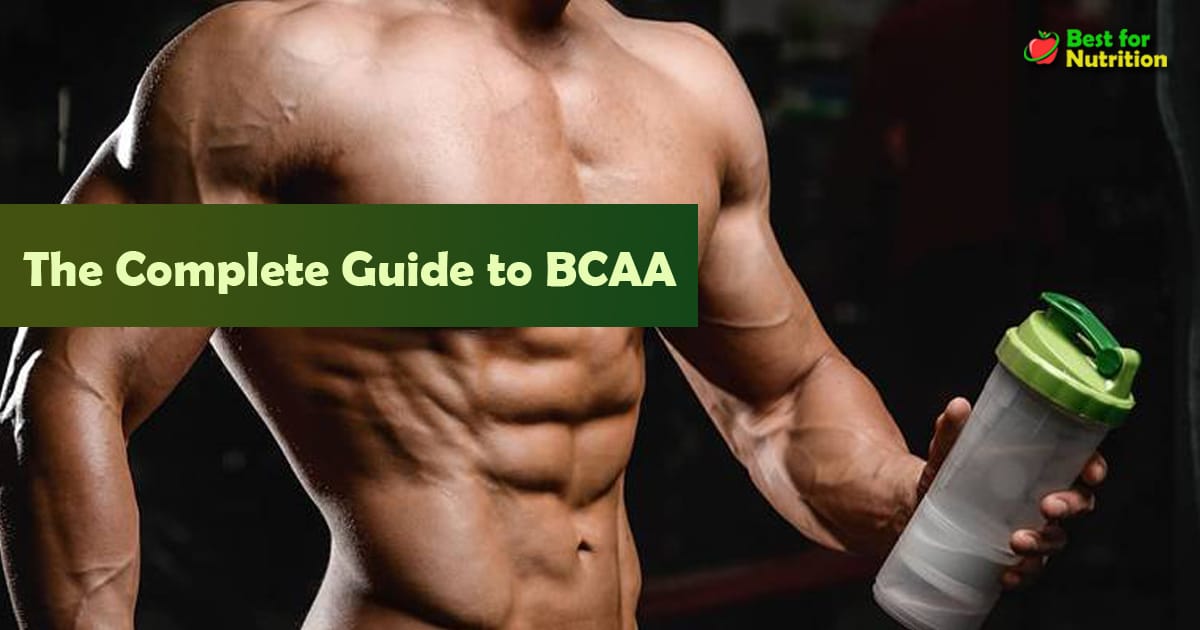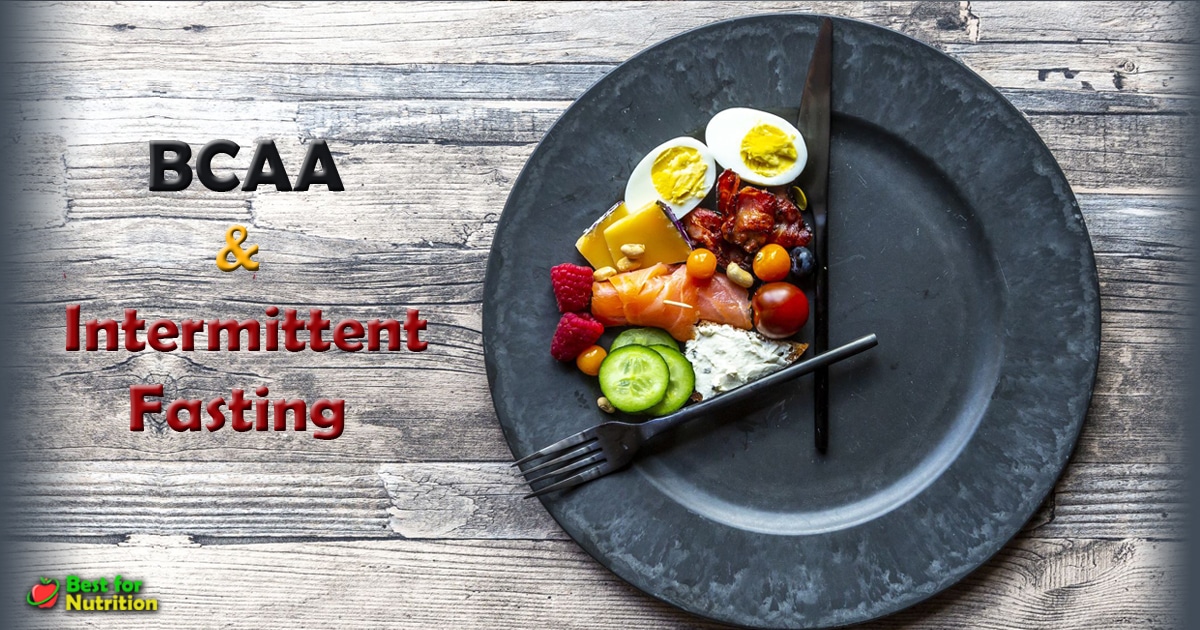The keto diet is a popular low carb diet for weight loss. It has shown great efficiency in reducing body fat and weight.
The keto diet is also followed by many in the fitness industry, such as athletes and bodybuilders. But there is often confusion about whether supplements like BCAA can be used while on a keto diet.
BCAAs are found to be a great addition to a keto diet when taken at the right time and in the correct doses. Their unique properties can optimize your workout performance while maintaining ketosis and help you work through the quirks.
Let’s take a closer look at the BCAA mechanisms that make them so successful in a keto diet, as well as, the timing and dosages of BCAA during the keto diet.
- What Is Ketosis?
- What is a Ketogenic Diet?
- BCAA in a Keto Diet
- Benefits: Is BCAA Good for Keto
- How to Take BCAAs on a Ketogenic Diet?
- FAQs

What Is Ketosis?
Ketosis is a metabolic state, where the fat is burned to provide energy instead of glucose. It normally takes place when there is limited glucose in the blood, which is the primary source of fuel for most cells in the body (1).
For ketosis to occur, you need to be in a very low carbohydrate diet. This means eating as less as 20-50 grams of carbohydrate per day (2).
When the body continues to get that kind of diet, the glucose level goes down and so do glycogen stores ( where glucose is stored). The body enters the starvation mode. When your body enters ketosis state, it becomes incredibly efficient at burning fat to produce energy (3).
The level of insulin goes down and fatty acids are released from body fat stores. These fatty acids then go to the liver and are oxidized into ketones. Ketone molecules then provide energy for the body.
Ketones have the capability of crossing the blood-brain-barrier when the brain needs fuel. This way it provides energy to the brain as well (4).
In this fat-burning process, people lose weight more efficiently than most other diets.
Summary: Ketosis is a metabolic state where the body uses ketones instead of glucose as a primary fuel for energy.
What is a Ketogenic Diet?
The keto diet or ketogenic diet is a high fat, low-carb diet where the carbohydrate is replaced by a healthy fat (5). It was first developed in the 1920s as a treatment for epilepsy (6).
Traditionally it was used as such for children having this problem, but in recent years, it has expanded far beyond that.
Entering a state of ketosis does require certain changes in the consumption of carbohydrates, protein, and fats. Usually, the ratio is like this:
- Fat -70% to 75%
- Protein -15 % to 25%
- Carbohydrate -5 %
Ketogenic diets can cause a great reduction in blood sugar and insulin levels. This coupled with increased ketones have shown numerous health benefits.
Athletes or people engaging in high-intensity activity should be carefully monitoring their performance when practicing the keto diet (7).
Even though endurance athletes can boost their performance with this diet, athletes in high-intensity, short-duration sports might face a drop in performance with this diet. They may require more protein and carbohydrates for peak metabolic function.
Summary: Ketogenic diets are very low carb, high-fat diets that force the body to use its fat reserves and lose weight. Endurance athletes may get benefits from keto, but athletes in high-intensity sports might see a drop in their performance.
BCAA in a Keto Diet
Ketosis is a transient state and any changes in food can swiftly kick you out of ketosis (8). Any increase in insulin level (insulin spike) can do that as it lowers ketone production (9). Remember, “Insulin suppresses ketone production”!
Hence, your main goal should be minimizing your insulin as much as possible.
However, if you workout or an athlete and practice this diet, you may face muscle mass reductions along with weight which you need to prevent. The only way to do that is to incorporate protein (10).
But, most dairy proteins such as whey proteins, casein are insulinogenic, i.e., insulin-producing and will have similar effects.
Protein may cause the insulin spike by stimulating the secretion of another protein called GLP-1, which stimulates insulin secretion (11).
Supplementing BCAA can solve this problem by increasing muscle protein synthesis without causing an insulin spike. This happens for two reasons.
One, it has low calories and hence causes a negligible spike in insulin. Second, it is used up very fast in the skeletal muscles during exercise without even converting to glucose.
Therefore, BCAA doesn’t only help in preserving and synthesis of muscles during ketosis but does so without taking you out of it.
Summary: While on a ketogenic diet, along with weight loss, if muscle gain and muscle protection are your objectives, BCAA supplements are the best.
Benefits: Is BCAA Good for Keto
Eating very low carbohydrate food, like in keto diet can often make exercise challenging. A keto-friendly BCAA supplement for energy and maximizing your daily workout can be a great addition.
Prevents Restricted Diet-induced Muscle Loss
Diets like keto, lower the protein intake which may in turn lead to difficulties for bodybuilders and athletes (12). Your muscle mass may decrease if not careful. This is because of the muscle protein breakdown while on a calorie-deficit diet.
BCAAs are great in protecting against muscle catabolism while fasting or in a caloric deficit state (13). It not only stimulates protein synthesis but reduces the rate of protein breakdown as well.
They do so by affecting the cellular components in the protein synthesis pathway and decreasing muscle protein breakdown by reducing substances that are involved in this process (14).
This protein- conservation -effect of BCAAs’ help prevent muscle loss in a keto diet. Leucine is the most effective among the three BCAAs in doing so (15).
Summary: The low protein intake in keto diet may not be sufficient in providing the required amino acids for muscle synthesis and can be solved with BCAA supplementation.
BCAAs Can Decrease Muscle Damage During Workout
There is a fair amount of protein breakdown that occurs during resistance training. If your muscles do not have sufficient nutrients to feed on before, during, or after weight training, muscle wasting or breakdown can occur (16).
35 percent of the muscle protein found in the body is BCAAs. Therefore, supplementing with BCAAs during times of muscle wasting can halt or slow this progression (17).
Several studies have supported the use of BCAA for inhibiting muscle protein breakdown which can positively improve the people undergoing intense workout in a keto diet (18, 19).
Summary: BCAAs can halt or stop muscle damage by providing the required amino acids which are otherwise low during ketosis.
BCAAs Can Accelerate Recovery After Resistance Training
BCAAs are great supplements to be given right after your workout. They won’t break your ketosis but will provide your muscles the exact building blocks they need to repair (20).
Administering BCAAs just before and right after exercise may reduce the severity and duration of delayed onset muscle soreness (DOMS). This is the feeling of pain that lasts for several days after an intense workout (21).
Studies have confirmed that BCAA intake reduces muscle damage in response to both resistance training and endurance exercise (22).
They lower the level of creatine kinase and lactate dehydrogenase, which are enzymes primarily involved in muscle damage (23).
BCAAs also accelerate recovery by lowering the lactic acid in the muscles that are accumulated during exercise and result in fatigue (24).
BCAAs help you recover faster with selected protein synthesis and help you bounce back faster with lesser soreness between challenging workouts (25).
HMB, which is available to the body, when leucine is broken down, has anti-catabolic properties (prevents muscle breakdown). It can help guard against muscle damage that may occur during exercise in a keto state (26).
Summary: By lowering certain enzymes, BCAAs reduce muscle damage post-workout. Leucine amongst them has the most anti-catabolic properties.
Increases Growth Hormone Circulation
Anabolic hormones such as testosterone, insulin, and growth hormones (GHG), are the ones that help in muscle building. Catabolic hormones such as cortisol are responsible for muscle tissue breakdown (27).
A delicate balance between these results in muscle protein synthesis and any disbalance may cause loss of muscle mass.
BCAA supplementation boosts the release of anabolic hormones and reduces catabolic hormone production, preventing protein breakdown. This is especially important in a ketosis state where your body has limited amino acids.
Summary: BCAAs help maintain a healthy hormonal balance that promotes muscle synthesis in the body while in a keto-diet.
Promotes Muscle Gain
For someone wanting to build muscle, supplementing BCAAs can be a good strategy while working out in a fasting condition.
BCAAs, especially leucine, if taken post-workout, is found to be one of the most powerful amino acids for protein synthesis. A diet supplemented with leucine stimulates protein synthesis, especially in skeletal muscles, and may even reverse protein catabolism (28).
In fact, leucine has a higher effect on muscle protein synthesis than that of insulin. Insulin is not needed to activate protein synthesis and trigger muscle growth if you have sufficient leucine in the body (29).
BCAAs, especially leucine, also promotes the synthesis of muscle protein through the mTOR pathway (30).
2-3 grams of leucine will successfully do so and even though it’s going to break a fast, it will also increase the anabolic effects of protein, meaning more protein synthesis out of eating less protein.
That’s a big success, especially for keto. Exercise can quickly eat up those and bring you back to a ketosis state.
Someone wanting to maximize their anabolic journey whether for building muscle or preventing muscle loss, taking a BCAA supplement even on keto can be a good idea. Leucine supplementation on keto is especially effective.
Summary: During fasting, BCAA, mainly leucine are excellent for muscle protein synthesis, muscle gain, and under conditions that may even reverse muscle protein breakdown.
BCAA Gets Burned For Energy While Working Out
The BCAAs are unique as they get metabolized in the skeletal muscle directly unlike other amino acids, which do so in the liver (31). In the muscle, BCAA can serve as an important energy source during exercise and during periods of stress (32).
When there is a deficiency in glucose, which is the primary energy source, BCAAs can serve as a source of energy.
This is especially true on intense exercise during ketosis state, where BCAAs taken as a pre-workout supplement, act as fuel without spiking your insulin level.
BCAAs, mainly isoleucine, and valine are more effective at producing energy and regulating your blood sugar levels than leucine (33).
Summary: BCAAs get metabolized in the muscles and can effectively provide energy for exercise.
Prevents Exercise Fatigue
Fatigue and exhaustion after exercise are common things that everyone experiences. How quickly you tire definitely affects your workout. Several factors like your nutrition and fitness level have a very important role to play in it.
During exercise, your muscles use BCAAs, causing its level in your blood to decrease. This results in an increase in the levels of the essential amino acid, tryptophan (34).
Tryptophan is converted to serotonin in the brain which is a chemical that contributes to the development of fatigue during exercise (35).
Supplementing your body with BCAA can prevent this occurrence, resulting in preventing exercise fatigue.
Summary: BCAAs improve your endurance during physical training by lowering serotonin levels, which in turn, prevents exercise-induced fatigue.
How to Take BCAAs on a Ketogenic Diet?
BCAAs can raise the insulin a little and may lower your ketones, however, you won’t be kicked out of ketosis (36). Even though it’s going to break a fast, you must understand that keto-adaptation has several layers to it (37).
A negligible rise of insulin temporarily may take place but it will lower back pretty soon.
BCAA intake in a fasted state will raise insulin, but not to that extent, as the amino acids will be directed to muscles for muscle protein synthesis.
Here, you are using BCAAs only during fasted heavy resistance training because your muscles are facing minute tears and these amino acids can be used for immediate recovery.
Leucine, one of the BCAAs and the most powerful amino acids for protein synthesis triggers muscle growth without any support from insulin, which is used to activate protein synthesis (38).
It increases the anabolic effect of protein which means more protein synthesis with less protein intake. That’s a huge accomplishment in any diet, especially in keto. Around 1-4 grams of leucine can make new proteins.
Summary: BCAAs are a great addition in a keto diet mainly when you are undergoing resistance training. It provides necessary nutrients for muscles without causing an insulin spike.
Frequently Asked Questions (FAQs)
Will BCAA Kick you out of Ketosis?
The intake of BCAA will not kick you out of ketosis as long as you don’t overdose on them.
At What Dosage Does BCAA Kick you out of Ketosis?
With 5-10 mg daily dosage of BCAA, you will remain in ketosis. You can divide it into one or two doses. This dosage is not much to trigger gluconeogenesis, which is the process of forming glucose from amino acids.
This process is the reason behind the insulin spike that takes place after eating too much protein on a keto diet.
Also, having BCAAs at the right time where it is readily used is important and confirms that you are not kicked off.
Anything above this dose, and you can be out of ketosis state.
What is the Right Time to Use The BCAA on a Keto diet?
The right time to use BCAA on a keto diet is just before your workout, preferably 30 minutes before workout. That gives you enough time to absorb the nutrients and let your muscles take it up.
The amino acids present in BCAA get used up straight away without converting into glucose.
By chance you do not take your BCAAs pre-workout, take them right after a workout where the muscles readily use it up for the recovery process. That way, BCAA won’t kick you out of ketosis.
The Final Note
BCAAs are a great supplement to optimize your anabolic journey of muscle building and preventing muscle loss.
Ketosis is a metabolic state where ketones instead of glucose are used for energy. BCAA in keto diet can be a great idea. It is all the more applicable to leucine, which is extremely effective.
They provide the important amino acids that nourish the muscles and aids in its synthesis. BCAAs also help in muscle repair, prevents muscle damage and muscle loss, enhances recovery, and provides the energy that increases endurance.
BCAAs do this without spiking the insulin level that can take you off ketosis. It is a must-try for all the bodybuilders and gym enthusiasts who want a lean, trim, muscular physique.





